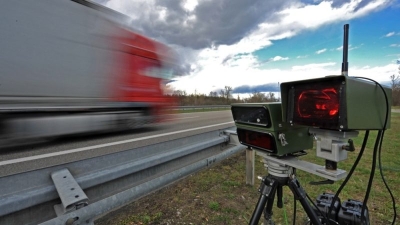Musk’s Twitter on collision course with Europe, with exit possible

By corporate decision, simple negligence or political reasoning, Twitter’s exit from Europe might only be a matter of time if the platform’s new management does not change its current course and commit to regulatory compliance.
Twitter does not even feature in the world’s top ten social media in terms of active users. Still, the social network punches above its weight regarding global influence, providing a privileged setting for politicians, celebrities, journalists and public figures.
That might be one of the main reasons Elon Musk took over the company last October, appointing himself ‘Chief Twit’. The way Twitter is run has changed dramatically under Musk, turning the platform from an industry leader to a black sheep.
In February, Commission Vice-President Věra Jourová issued a moral ‘yellow card’ for Twitter’s lack of effort in complying with the Code of Practice on Disinformation. However, threatening a red card only works if the player wants to stay on the field.
Twitter gets ‘yellow card’ as platforms report on content moderation
As major platforms submitted their first progress reports on compliance with the updated Code of Practice on Disinformation, EU officials criticised Twitter for its scant efforts, which gave the impression it “didn’t take it seriously enough”.
Twitter at a crossroads
According to a source involved in the Code of Practice, Twitter’s withdrawal from Europe would not be surprising since its engagement with the Code has been steadily fading, and its capacity to keep up with commitments is no longer guaranteed.
Whilst the Code is a voluntary agreement, it will become binding under the Digital Services Act (DSA), the EU’s brand-new content moderation rulebook. The landmark legislation will introduce a strict regime for very large online platforms, those with more than 45 million users in the EU, by this autumn.
Failing to comply with the EU law could lead to hefty fines, up to 6% of the company’s global annual turnover, or even a complete ban in case of repeated offences.
Musk and other senior company officers have kept a reassuring tone with EU officials, and Twitter has not contested the designation as a very large online platform. Still, the company has been moving in the opposite direction, dismantling the existing transparency and safety features.
Good meeting with @ThierryBreton regarding EU DSA. The goals of transparency, accountability & accuracy of information are aligned with ours.@CommunityNotes will be transformational for the latter.
— Elon Musk (@elonmusk) January 31, 2023
“Sooner or later, Twitter will have to decide whether to comply with the DSA,” an EU official told EURACTIV.
That decisive moment might come later in the year when very large online platforms must publish their first risk assessment to be vetted by external auditors.
“Twitter has no capacity to start undertaking the required risk assessments. If they produce nothing, they are probably done in Europe,” Rebekah Tromble, director of the George Washington University’s Institute for Data, Democracy & Politics, told EURACTIV.
“Resources are not there to comply,” confirmed a former Twitter employee under the condition of anonymity. For a second former employee, regulatory compliance is not the priority of the new management, which is focused on making the company more profitable.
An underlying question is whether compliance might be worth the trouble. Indeed, Europe has never been a key market for Twitter, which is focused on the United States, Japan and other Asian markets.
According to a third former Twitter employee, the UK market alone is worth roughly as much, if not more, as the entire EU.
While the social network recently picked up pace in some national markets like Germany, France and Spain, none of them features in the company’s top ten, according to Kepios.
“Complying with the DSA is a way of reassuring advertisers that you are able to take down illegal content and deal with harmful content,” Nick Botton, a senior policy associate at AWO, told EURACTIV.
And reassuring advertisers is something Twitter could very much benefit from since advertising spending reportedly dropped by 70% last December.
However, Musk seems determined to move away from the advertising-run model in favour of subscriptions for Twitter Blue accounts.
Shifting business model
To what extent there is an appetite for such subscriptions, especially in the smaller European markets, remains to be seen. Previous examples of creating an ‘iTunes for journalism’ failed despite backing from premium publishers.
Twitter Blue also poses several issues in terms of regulatory compliance. For Fernando Hortal Foronda, a digital policy officer at the European Partnership for Democracy, enabling users to pay to boost their tweets’ reach would qualify them as an advertisement under the DSA.
Asked by EURACTIV, the European Commission did not clarify whether it considers Twitter Blue a form of advertisement. However, if that is the case, tweets from Twitter Blue accounts would have to be labelled as ads and featured in a public advertising repository – obligations that would be a significant burden for the company.
EURACTIV understands that there are also lawyers in the United States questioning whether Twitter Blue violates the advertising guidelines of the Federal Trade Commission.
Twitter Blue poses a regulatory challenge also regarding disseminating harmful content. It is currently unclear what will happen if these paid accounts are used to disseminate disinformation or hate speech.
But Twitter’s regulatory nightmare does not end there. Time and again, Musk has made clear the company is moving toward Community Notes. In this self-regulated content moderation system, unqualified users would be put in charge of double-checking editorial and other types of content.
Another sign that Twitter and Europe’s rules might be at odds is that Musk removed the platform’s free API that allowed researchers to analyse its content moderation practices, with the view of turning it into a paid service.
The DSA mandates that an API should be made available for researchers, but it does not specify that it would have to be for free. However, charging too high of a fee would contradict the spirit of the provision.
Culture wars and the Brussels effect
Europe’s capacity to impose norms on global companies stems from its status as one of the world’s largest markets. However, cost-benefit considerations on regulatory compliance are increasingly frequent among tech companies.
At the end of March, the FT revealed that Meta is considering shutting down political advertising in Europe, a relatively small market compared to the United States, to avoid going through the hassle of complying with the EU’s upcoming rules on online campaigning.
However, the EU has increasingly gained the rank of global standard-setter in digital policy. Legislation similar to the DSA is currently under discussion in Brazil, Canada and Switzerland, paying tribute to the so-called ‘Brussels effect’.
As such, a major technology company pulling out of the European market might become a dangerous precedent. However, while Twitter’s exposure to Europe was relatively minor, the same is not true for other tech companies that see one of their most profitable markets in the Old Continent.
Moreover, according to a second EU official, Musk’s erratic behaviour would also contribute to downsizing the importance of Twitter’s eventual withdrawal as a precedent.
“If Twitter is withdrawing, that means by itself that the DSA has teeth,” Tromble of the George Washington University added.
However, economic considerations might not be the only ones at play inside Twitter, as the company has been bleeding money since Musk took it over.
“Musk never bought Twitter from a business perspective. It’s all about having an instrument in the culture war in the United States. That’s the only thing he cares about,” a second source involved in the Code of Practice told EURACTIV, requesting anonymity.
For this second source, publicly clashing with ‘woke’ Europe on matters such as freedom of speech might be instrumental for Musk to advance his political agenda.



